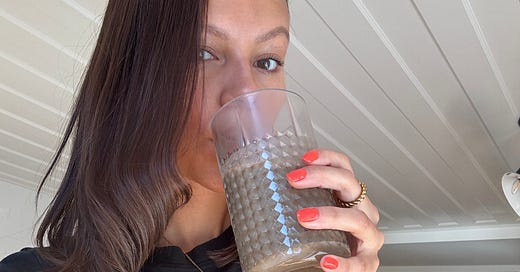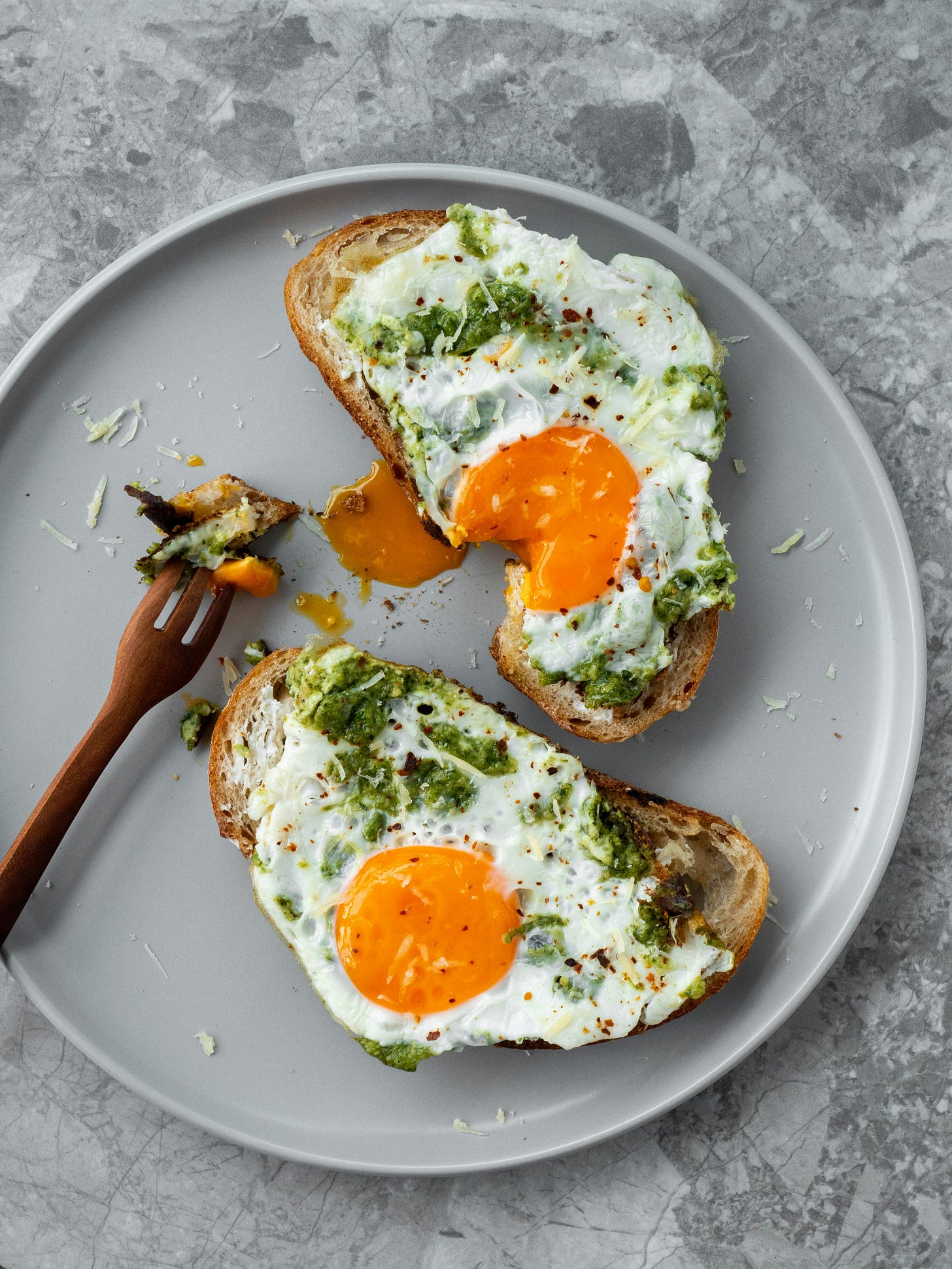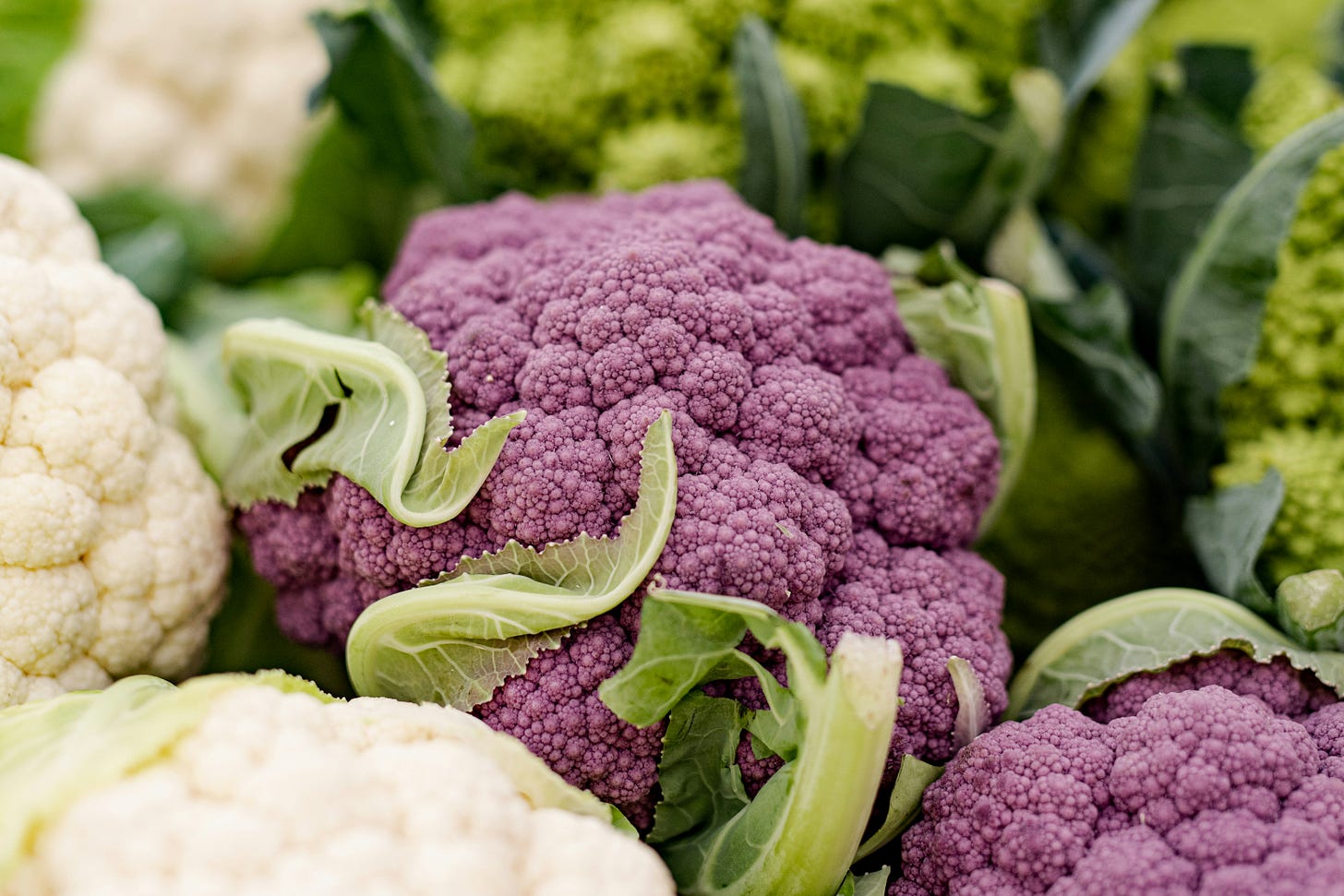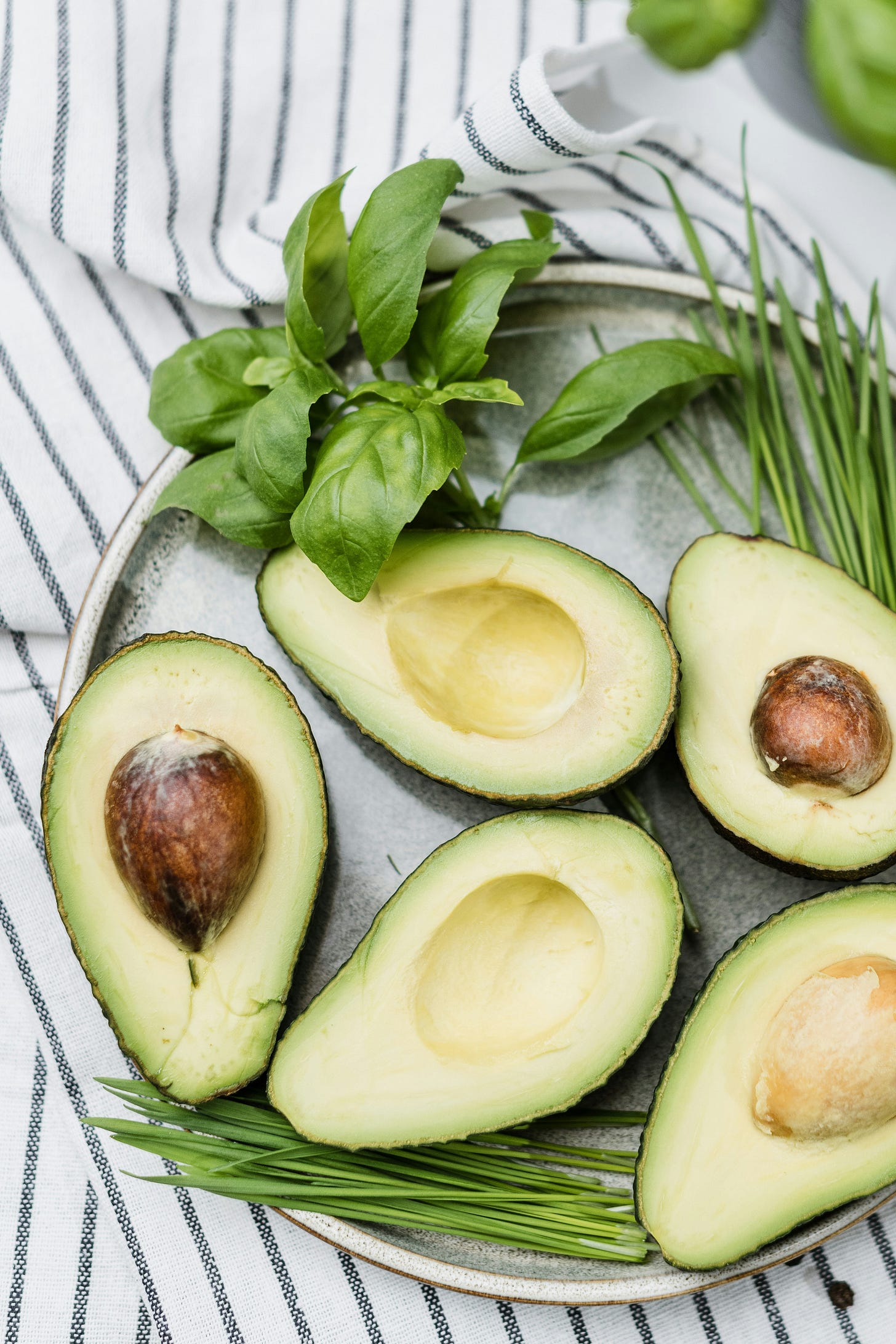10 Things I Wish Every Woman Knew About Her Hormones
Because your hormones influence everything, and most of us were never taught how they actually work!
Hormones shape your energy, mood, metabolism, skin, cycle, sleep, and sex drive.
They affect how you feel every single day!
And yet? Most of us were taught the bare minimum. Love that for us.
Whether you’re on the pill, tracking your cycle, trying to conceive, or just trying to feel more like yourself - this is what I wish every woman knew about her hormones. And what to do about it.
I’m a Lisbon-based nutritionist and I post twice a week on all things nutrition and wellbeing. Btw, if you enjoy this piece, you may want to check out my posts on fibre, sugar cravings and skin health.
1. When your blood sugar is steady, your hormones work better.
Blood sugar impacts insulin, cortisol, and sex hormones like oestrogen and progesterone. Spikes and crashes make everything feel harder - like cravings, PMS, mood, sleep and energy.
What to do -
Ideally, your breakfast contains 20–30g protein.
And on that note, include a source of protein with each meal!
Avoid caffeine on an empty stomach.
Snack with intention. Pair carbs with protein or fat (e.g. apple + nut butter, oatcakes + hummus).
2. Your period is a monthly report card.
A healthy menstrual cycle is regular, relatively symptom-free, and a sign your body is nourished, not overstressed. Pain, bloating, acne, or irregularity might mean that something’s off.
What to do -
Track your cycle length, symptoms, and mood patterns with an app or notebook.
Prioritise whole foods, rest, and recovery during your luteal phase (the week before your period). Yes, sometimes the family-sized galaxy bar is needed, but try to make healthy choices as it will make your period more pleasant.
Seek support if your period is missing, extremely painful, or irregular. These are worth investigating.
3. PMS is common, but it’s not something you have to ‘just get on with.’
Severe mood changes, irritability, insomnia, or physical discomfort aren’t always inevitable. They’re often driven by nutrient deficiencies, poor blood sugar balance, or difficulty clearing excess oestrogen.
What to do -
Support with magnesium glycinate and omega-3s.
Consume cruciferous veg (e.g. broccoli, cauliflower, rocket, kale) to support oestrogen detox.
Reduce alcohol and ultra-processed foods in the second half of your cycle.
Make rest a non-negotiable! This is your time to lean in to that.
4. The health of your gut has a huge impact on your hormones.
Your gut helps to clear out excess hormones, especially oestrogen - and influences everything from inflammation to mood. Digestive issues often go hand-in-hand with hormone imbalances. Two birds, one stone and all that…
What to do -
Aim for 30+ different plant foods per week (this includes herbs, nuts, seeds, legumes, veg, fruit).
Include fermented foods like plain yoghurt, kefir, kimchi or sauerkraut.
Hit 30g fibre per day from whole foods like oats, beans, chia, and berries.
If bloating or irregularity is a daily issue, speak to a doctor (and then a nutritionist if necessary).
5. It’s worth understanding how the pill impacts your body
Hormonal contraception suppresses ovulation and alters hormone levels. Of course, it can be an incredibly helpful tool - and it may really suit your requirements and be the best option for you - but it’s not neutral and it’s okay to want more information about how it’s impacting your body.
What to do -
Consider supplementing with magnesium, B12 and zinc while on the pill, as the pill has been known to deplete these nutrients.
Track your mood, energy, and digestion to notice any patterns.
If you’re coming off hormonal contraception, give your body time to recalibrate and support it with nutrient-dense meals.
6. You need enough fat and protein to make hormones.
Your body uses dietary fat and cholesterol to build steroid hormones like oestrogen and progesterone. Protein is also essential for hormone transport, detox, and tissue repair.
What to do -
Consume healthy fats like olive oil, oily fish (salmon, mackerel, anchovies, sardines, herring), egg yolks, and seeds daily.
Eat protein with every meal.
Avoid very low-fat or restrictive diets long-term.
7. Chronic stress suppresses reproductive hormones.
When your body perceives stress - be that physical or emotional - it prioritises survival over reproduction.
What to do -
Prioritise your mental health and a calm nervous system (easier said than done I know)
Avoid intense workouts every single day - especially if you’re already run down.
Eat enough. Chronic under-eating = chronic stress to the body.
Say no more often.
8. Your liver plays a quiet but crucial role in hormone balance.
Your liver helps to process and clear out used-up hormones - especially oestrogen. When it’s overburdened (by alcohol, ultra-processed foods, or environmental toxins), excess hormones can build up and drive symptoms like PMS, headaches, or skin flare-ups.
What to do -
Limit alcohol where you can - and especially in the week before your period.
Eat cruciferous veg like broccoli, rocket, and cauliflower to support detoxification.
Stay hydrated.
Consume lots of antioxidant-rich plant foods like berries, red cabbage, spinach etc.
9. Try to work with your cycle
You’re not meant to feel the same every day. Your energy, cravings, mood, and motivation all shift across your cycle. When you learn to work with that, everything becomes more manageable.
What to do -
Plan high-output work or intense training during your follicular and ovulatory phases.
Scale back slightly in your luteal phase and prioritise gentle structure.
Honour the need to slow down during your period.
10. Your hormones change across your life, and that’s normal!
Hormonal needs aren’t static. What supports you in your 20s might not work in your 30s or 40s.
What to do -
Check in with your body regularly. What worked last year might need tweaking now.
Let go of one-size-fits-all wellness rules! Listen to your body and take advantage of a woman’s intuition.
If you’ve got this far, well done!
If this post helped you, you can -
→ Forward it to a friend who might need this info too
→ Leave a comment and let me know what surprised you most
→ Or tap the ❤️ so I know you’re enjoying this kind of content
I’m a 32 year old nutritionist living in Lisbon, and I post twice weekly about nutrition and wellbeing. Subscribe and join in on the fun!
Have a lovely rest of your day.
Sophie xxx










This should be taught to girls from when they start their periods. I learned about cycle syncing in my mid 30s and I wish I had known it sooner.
Take a look at my recommended supplements here - https://www.amazon.co.uk/shop/sophietrotmannutrition?ref_=cm_sw_r_cp_ud_aipsfshop_T0DKJCJHDY95KJ853DJJ